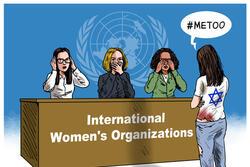Technology
As an online-only archive, technology provides the foundation for everything that we do. As a small archive, we also focus on those technologies that are sustainable—most often, these are Open Source—and affordable. There are three primary areas where we are developing new technology or new projects:
Engagement—When we started the Jewish Women's Archive, it seemed most important just to make information available. Thousands of features, database entries, and articles later, it is equally clear that this information is most effective when people can interact with what is present, contribute their own knowledge, and best, use the resources that we have gathered in new ways, from doing research based on the information in the archive, to creating new presentations, articles, and entries. In the Summer of 2009, we completed major software development on a project we call Unlocking the Archive, partially funded by the Revson Foundation that will ultimately enable all content, from images to articles, audio, video, and more, on our site, or from elsehwere to be used in the creation of new, easily shareable presentations. The key components to this Open Source software are now available from Drupal.org, and will first be unveiled on our site as part of our "Living the Legacy" project which will begin beta testing in December 2009. These presentation tools will become increasingly useful as we complete the integration of our legacy exhibits and materials into our Web 2.0-enabled "Content Management System" (CMS).
Accessibility—We focus on two types of accessibility. First, all materials on the Jewish Women's Archive website can be accessed by users relying on a wide variety of devices, including text-only browsers and speech devices. As part of the migration of all content into a CMS, we are revisiting and improving this accessibility, and adding features that will make these materials more easily accessible on mobile devices such as phones.
Second, we are focusing on how to make materials more "findable".
This project will include the ability to browse the website by subject, as well as a new "faceted" search engine--one that not only returns results in a traditional list, but also suggests how to dig further, and notes related, relevant areas of inquiry that may also be worth exploring. We want to make it easier to find "deep" information, but we also want to recreate the sense of wonder that was once conveyed by browsing through card catalogs or Encyclopedias, discovering how much there is to know and how exciting it is to be learning, reading, and engaging.
Preservation—It takes special efforts to preserve the raw materials that underpin the thousands of articles on the Jewish Women's Archive website. There are hundreds of oral histories, and thousands of images, audio clips, flash clips, video presentations, and other "digital objects". In 2008–2009, we used an Open Source software framework called "Fedora," newly-available "Cloud Computing" resources, and "Agile" software development methods to create a core digital repository (known internally as "Bella") to ensure the long-term preservation of several hundred oral histories that were at risk in their original cassette and mini-DV formats, and presented what we learned at two conferences
We initiated and co-founded the DuraSpace "Small Archives" Community to find long-term, Open Source solutions that will enable preservation of all of our materials in an affordable, sustainable way.
There is a second Preservation-related issue that is a critical part of our mission: Preserving the record of individual accomplishment. In years past, we have initiated a number of Oral History projects, from "Weaving Women's Words" in Seattle and Baltimore, to "Women Who Dared" in cities around the United States, and "Katrina's Jewish Voices," focused on New Orleans and the Gulf Coast in the wake of Hurricane Katrina. We are now looking for partners who will help us explore the use of technology to capture individual stories—to tie one person's images, oral history, and other memorabilies in with an entire community in ways that preserve the memories and accomplishments of the individual and the community, and which make it possible to connect those stories to a web of Jewish women's experience throughout the United States and Canada. If you are interested in these projects, please contact us.


